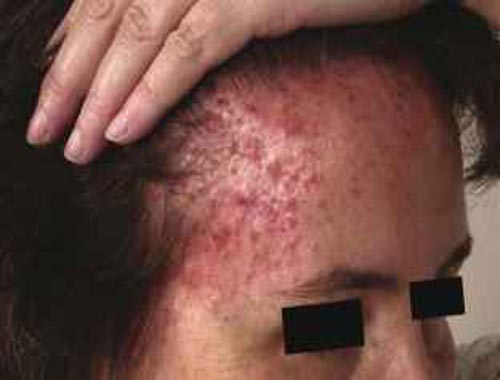Langerhans cell histiocytosis (Hashimoto-Pritzger disease, Histiocytosis X)
Langerhans cell histiocytosis (LCH) is a group of idiopathic disorders characterized by the presence of cells with characteristics similar to bone marrow-derived Langerhans cells juxtaposed against a backdrop of hematopoietic cells, including T-cells, macrophages, and eosinophils. Langerhans cell histiocytosis is a disorder in which excess immune system cells called Langerhans cells build up in the body. Langerhans cells, which help regulate the immune system, are normally found throughout the body, especially in the skin, lymph nodes, spleen, lungs, liver, and bone marrow. In Langerhans cell histiocytosis, excess immature Langerhans cells usually form tumors called granulomas. However, Langerhans cell histiocytosis is not generally considered to be a form of cancer. The disorder is characterized by the clonal proliferation of pathogenic Langerhans cells in single or multiple organs. Exact etiology and pathogenesis is unknown. But it is thought to be either a malignant process or due to immune dysregulation. Tissue biopsy of lesional cells showing the presence of CD1a and langerin (CD207) is definitive for diagnosis in the correct clinical setting. Clinical presentation is heterogeneous and ranges from self-healing bone lesions to multisystem, life-threatening disease. Treatment of relapsed disease and CNS neurodegenerative disease remains a challenge. Multisystem disease is treated with systemic, multiagent chemotherapy. Prognostic factors include rapid response to therapy and risk-organ involvement.
